Team Group T-Create Classic Thunderbolt 3 External Up to 4TB SSD and T-Force Cardea Z44L PCIe 4.0 M.2 Up to 1TB SSD
From $250 (1TB) to $900 (4TB) for T-Create Classic Thunderbolt 3 external SSD, from $75 (500GB) to $167 (1TB) for T-Force Cardea Z44L PCIe4.0 M.2 SSD
This is a Press Release edited by StorageNewsletter.com on September 17, 2021 at 1:31 pmTeam Group Inc.’s sub-brands T-Create and T-Force launched 2 SSDs for creators and gamers seeking the top upgrade: the T-Create Classic Thunderbolt 3 external SSD that supports Thunderbolt and USB interfaces, and the T-Force Cardea Z44L PCIe4.0 SSD, which features a -patented and -designed thin graphene heat sink.
Offering multi-interface support and cooling technology for stable, high-speed transfer rates, these new products will transform the storage experience for creators and gamers.
With Thunderbolt 3 completely surpassing the top speeds of USB interfaces, Thunderbolt 3 storage devices have become increasingly prevalent. For creators seeking an SSD that is compatible with a variety of interfaces and platforms and can transfer large files at high speeds, the T-Create Classic Thunderbolt 3 External SSD with its multi-interface support meets all the criteria. The SSD features a single Type C connector that supports Thunderbolt 3 and 4, as well as USB3.2 Gen2 interfaces. Plug and play, and it will automatically detect the interface type without needing time-consuming configuring. It is also compatible with Mac OS and Windows systems, allowing creators to present their work without worrying about restrictions on different OSs when they are out making proposals and accessing their data. This single SSD supports multiple mainstream interfaces and platforms, making file transfers between machines effortless and providing creators freedom and convenience.
T-Create Classic Thunderbolt 3 external SSD
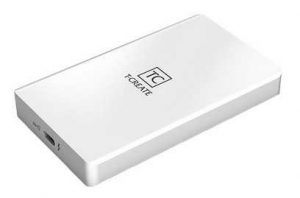
The Classic Thunderbolt 3 External SSD can reach speeds of up to 900MB/s when using the USB interface. Unleash the performance of PCIe Gen3x4 by connecting it to a Thunderbolt 3 port, which allows it to reach speeds of up to 2,700 MB/s [1] [2]. In 15s, it can transfer up to 25GB of multimedia files. The SSD’s glacier silver aluminum heatsink has an elegant design, providing durability and cooling purposes during high-speed data transfers. The largest capacity version comes in at 4TB of storage, meeting the needs of a variety of creators.
T-Force Cardea Z44L PCIe4.0 SSD
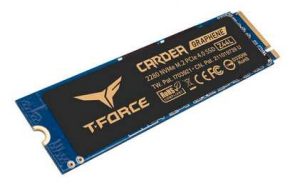
The company also revealed a product under the series equipped with patented ultra-thin graphene heat sinks, the T-Force Cardea Z44L PCIe4.0 SSD, bringing a force of PCIe 4.0 to the gaming storage market. It comes with a thin graphene heat sink containing multiple patented technologies that improves heat dissipation by up to 9%. [3] Built with materials for thermal conductivity, it gives gamers flexibility for their builds and is compatible with all motherboard heat sinks.
It supports the PCIe Gen 4×4 interface and can deliver R/W speeds of up to 3,500/3,000MB/s [4], 7x faster than typical SATA SSDs. Moreover, its selected 3D-TLC NAND flash memory and SLC cache design allow it to maintain stability at the high transfer speeds of PCIe 4.0. Available in 500GB and 1TB variants, it is a choice for gamers looking to upgrade their PCIe Gen 3 SSD to Gen 4.
[1] This is the maximum speed when connecting to a Thunderbolt interface. When connecting to a USB interface, it goes up to 900MB/s; actual performance varies by the capacity, host machine, user application, and other factors.
[2] This speed is from the recorded data of tests conducted by company’s technology lab using a 2019 MacBook Pro.
[3] The experimental data is based on T-Force internal laboratory’s test result. Under the same condition, the temperature test data is according to the comparison of the non-heat spreader M.2 PCIe Gen4 x4 SSD and the T-Force Cardea Z44L SSD. The relevant test environment is simulated under a fanless environment using mask. The actual speed may vary depending on the software and hardware conditions of the platform.
[4] This product is compatible with Intel and AMD platforms, and the performance result is tested on a motherboard that supports PCIe 4.0 interface by the T-Force internal laboratory. The actual speed may vary depending on the software and hardware conditions of the platform.








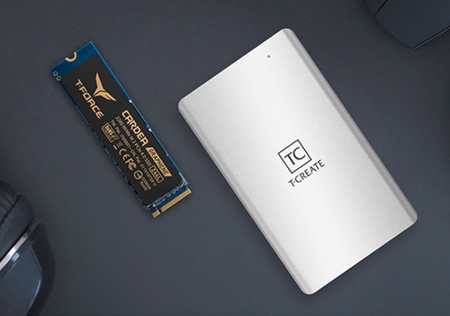
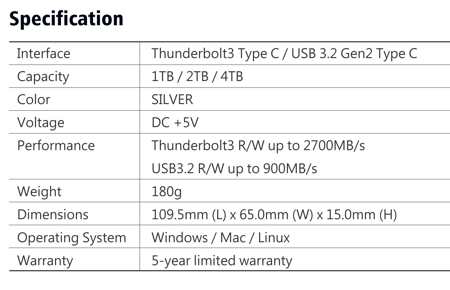
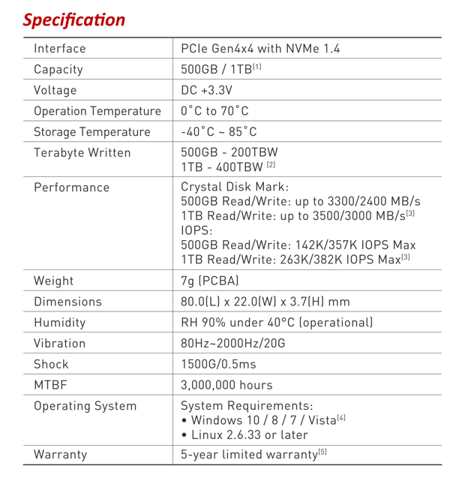







 Subscribe to our free daily newsletter
Subscribe to our free daily newsletter


